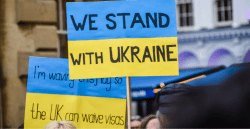The President of Brazil, Michel Temer, reportedly slashed funding to combat modern slavery by 70% last year.
The major funding cut has severely impacted the government’s rescue efforts: from 2015 to 2017 the number of cases where authorities rescued victims from modern slavery decreased by nearly 50%.
Related Campaign: Help end forced labor.
Furthermore, the number of government inspectors tasked to root out child labor has reached its lowest level in 20 years.
“Our last big selection process to select fiscal work auditors was in 2010, which admitted roughly 400 fiscal auditors. Afterwards, in 2014, we admitted 96 more. But since then we have not had another selection process,” said fiscal work auditor Livia dos Cantos Ferreira. Fiscal work auditors work with the Public Labor Ministry.
Telesur reports:
Eliane Santos, a ministry attorney, said the country “experienced a historic process of advances in combating child labour” during the governments of former Brazilian Presidents Luiz Inacio Lula da Silva and his successor Dilma Rousseff.
“In the 1990s, there were 9.6 million children and adolescents who worked. This number was reduced to 2.7 million, according to PNAD (National Household Sample Survey) in 2015” Santos stressed. “This was possible as a result of social policies, of which Brazil used to be reference.”
Last year, human rights specialists working as part of the United Nations urged Temer and his administration to adopt urgent measures to combat slave labor in Brazil, criticizing a government decree ordering budget cuts destined for its eradication.
A joint statement from human rights campaigners read that while in the past Brazil played a “leadership role in the fight against modern-day slavery,” under President Temer the country has backtracked.
His “surprising and disappointing” actions “can make the country lose terrain on this front,” reads the statement.
Take Action: Help end forced labor.







Freedom United is interested in hearing from our community and welcomes relevant, informed comments, advice, and insights that advance the conversation around our campaigns and advocacy. We value inclusivity and respect within our community. To be approved, your comments should be civil.